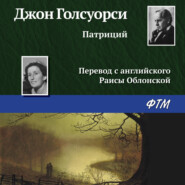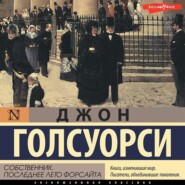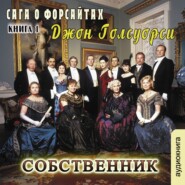По всем вопросам обращайтесь на: info@litportal.ru
(©) 2003-2024.
✖
The Freelands
Настройки чтения
Размер шрифта
Высота строк
Поля
When she was ready she took a long time to decide whether to wear her mother’s lace or keep it for the Bigwigs. But it was so nice and creamy that she simply could not take it off, and stood turning and turning before the glass. To stand before a glass was silly and old-fashioned; but Nedda could never help it, wanting so badly to be nicer to look at than she was, because of that something that some day was coming!
She was, in fact, pretty, but not merely pretty – there was in her face something alive and sweet, something clear and swift. She had still that way of a child raising its eyes very quickly and looking straight at you with an eager innocence that hides everything by its very wonder; and when those eyes looked down they seemed closed – their dark lashes were so long. Her eyebrows were wide apart, arching with a slight angle, and slanting a little down toward her nose. Her forehead under its burnt-brown hair was candid; her firm little chin just dimpled. Altogether, a face difficult to take one’s eyes off. But Nedda was far from vain, and her face seemed to her too short and broad, her eyes too dark and indeterminate, neither gray nor brown. The straightness of her nose was certainly comforting, but it, too, was short. Being creamy in the throat and browning easily, she would have liked to be marble-white, with blue dreamy eyes and fair hair, or else like a Madonna. And was she tall enough? Only five foot five. And her arms were too thin. The only things that gave her perfect satisfaction were her legs, which, of course, she could not at the moment see; they really WERE rather jolly! Then, in a panic, fearing to be late, she turned and ran out, fluttering into the maze of stairs and corridors.
CHAPTER VI
Clara, Mrs. Stanley Freeland, was not a narrow woman either in mind or body; and years ago, soon indeed after she married Stanley, she had declared her intention of taking up her sister-in-law, Kirsteen, in spite of what she had heard were the woman’s extraordinary notions. Those were the days of carriages, pairs, coachmen, grooms, and, with her usual promptitude, ordering out the lot, she had set forth. It is safe to say she had never forgotten that experience.
Imagine an old, white, timbered cottage with a thatched roof, and no single line about it quite straight. A cottage crazy with age, buried up to the thatch in sweetbrier, creepers, honeysuckle, and perched high above crossroads. A cottage almost unapproachable for beehives and their bees – an insect for which Clara had an aversion. Imagine on the rough, pebbled approach to the door of this cottage (and Clara had on thin shoes) a peculiar cradle with a dark-eyed baby that was staring placidly at two bees sleeping on a coverlet made of a rough linen such as Clara had never before seen. Imagine an absolutely naked little girl of three, sitting in a tub of sunlight in the very doorway. Clara had turned swiftly and closed the wicket gate between the pebbled pathway and the mossed steps that led down to where her coachman and her footman were sitting very still, as was the habit of those people. She had perceived at once that she was making no common call. Then, with real courage she had advanced, and, looking down at the little girl with a fearful smile, had tickled the door with the handle of her green parasol. A woman younger than herself, a girl, indeed, appeared in a low doorway. She had often told Stanley since that she would never forget her first sight (she had not yet had another) of Tod’s wife. A brown face and black hair, fiery gray eyes, eyes all light, under black lashes, and “such a strange smile;” bare, brown, shapely arms and neck in a shirt of the same rough, creamy linen, and, from under a bright blue skirt, bare, brown, shapely ankles and feet! A voice so soft and deadly that, as Clara said: “What with her eyes, it really gave me the shivers. And, my dear,” she had pursued, “white-washed walls, bare brick floors, not a picture, not a curtain, not even a fire-iron. Clean – oh, horribly! They must be the most awful cranks. The only thing I must say that was nice was the smell. Sweetbrier, and honey, coffee, and baked apples – really delicious. I must try what I can do with it. But that woman – girl, I suppose she is – stumped me. I’m sure she’d have cut my head off if I’d attempted to open my mouth on ordinary topics. The children were rather ducks; but imagine leaving them about like that amongst the bees. ‘Kirsteen!’ She looked it. Never again! And Tod I didn’t see at all; I suppose he was mooning about amongst his creatures.”
It was the memory of this visit, now seventeen years ago, that had made her smile so indulgently when Stanley came back from the conference. She had said at once that they must have Felix to stay, and for her part she would be only too glad to do anything she could for those poor children of Tod’s, even to asking them to Becket, and trying to civilize them a little… “But as for that woman, there’ll be nothing to be done with her, I can assure you. And I expect Tod is completely under her thumb.”
To Felix, who took her in to dinner, she spoke feelingly and in a low voice. She liked Felix, in spite of his wife, and respected him – he had a name. Lady Malloring – she told him – the Mallorings owned, of course, everything round Joyfields – had been telling her that of late Tod’s wife had really become quite rabid over the land question. ‘The Tods’ were hand in glove with all the cottagers. She, Clara, had nothing to say against any one who sympathized with the condition of the agricultural laborer; quite the contrary. Becket was almost, as Felix knew – though perhaps it wasn’t for her to say so – the centre of that movement; but there were ways of doing things, and one did so deprecate women like this Kirsteen – what an impossibly Celtic name! – putting her finger into any pie that really was of national importance. Nothing could come of anything done that sort of way. If Felix had any influence with Tod it would be a mercy to use it in getting those poor young creatures away from home, to mix a little with people who took a sane view of things. She would like very much to get them over to Becket, but with their notions it was doubtful whether they had evening clothes! She had, of course, never forgotten that naked mite in the tub of sunlight, nor the poor baby with its bees and its rough linen. Felix replied deferentially – he was invariably polite, and only just ironic enough, in the houses of others – that he had the very greatest respect for Tod, and that there could be nothing very wrong with the woman to whom Tod was so devoted. As for the children, his own young people would get at them and learn all about what was going on in a way that no fogey like himself could. In regard to the land question, there were, of course, many sides to that, and he, for one, would not be at all sorry to observe yet another. After all, the Tods were in real contact with the laborers, and that was the great thing. It would be very interesting.
Yes, Clara quite saw all that, but – and here she sank her voice so that there was hardly any left – as Felix was going over there, she really must put him au courant with the heart of this matter. Lady Malloring had told her the whole story. It appeared there were two cases: A family called Gaunt, an old man, and his son, who had two daughters – one of them, Alice, quite a nice girl, was kitchen-maid here at Becket, but the other sister – Wilmet – well! she was one of those girls that, as Felix must know, were always to be found in every village. She was leading the young men astray, and Lady Malloring had put her foot down, telling her bailiff to tell the farmer for whom Gaunt worked that he and his family must go, unless they sent the girl away somewhere. That was one case. And the other was of a laborer called Tryst, who wanted to marry his deceased wife’s sister. Of course, whether Mildred Malloring was not rather too churchy and puritanical – now that a deceased wife’s sister was legal – Clara did not want to say; but she was undoubtedly within her rights if she thought it for the good of the village. This man, Tryst, was a good workman, and his farmer had objected to losing him, but Lady Malloring had, of course, not given way, and if he persisted he would get put out. All the cottages about there were Sir Gerald Malloring’s, so that in both cases it would mean leaving the neighborhood. In regard to village morality, as Felix knew, the line must be drawn somewhere.
Felix interrupted quietly:
“I draw it at Lady Malloring.”
“Well, I won’t argue that with you. But it really is a scandal that Tod’s wife should incite her young people to stir up the villagers. Goodness knows where that mayn’t lead! Tod’s cottage and land, you see, are freehold, the only freehold thereabouts; and his being a brother of Stanley’s makes it particularly awkward for the Mallorings.”
“Quite so!” murmured Felix.
“Yes, but my dear Felix, when it comes to infecting those simple people with inflated ideas of their rights, it’s serious, especially in the country. I’m told there’s really quite a violent feeling. I hear from Alice Gaunt that the young Tods have been going about saying that dogs are better off than people treated in this fashion, which, of course, is all nonsense, and making far too much of a small matter. Don’t you think so?”
But Felix only smiled his peculiar, sweetish smile, and answered:
“I’m glad to have come down just now.”
Clara, who did not know that when Felix smiled like that he was angry, agreed.
“Yes,” she said; “you’re an observer. You will see the thing in right perspective.”
“I shall endeavor to. What does Tod say?”
“Oh! Tod never seems to say anything. At least, I never hear of it.”
Felix murmured:
“Tod is a well in the desert.”
To which deep saying Clara made no reply, not indeed understanding in the least what it might signify.
That evening, when Alan, having had his fill of billiards, had left the smoking-room and gone to bed, Felix remarked to Stanley:
“I say, what sort of people are these Mallorings?”
Stanley, who was settling himself for the twenty minutes of whiskey, potash, and a Review, with which he commonly composed his mind before retiring, answered negligently:
“The Mallorings? Oh! about the best type of landowner we’ve got.”
“What exactly do you mean by that?”
Stanley took his time to answer, for below his bluff good-nature he had the tenacious, if somewhat slow, precision of an English man of business, mingled with a certain mistrust of ‘old Felix.’
“Well,” he said at last, “they build good cottages, yellow brick, d – d ugly, I must say; look after the character of their tenants; give ‘em rebate of rent if there’s a bad harvest; encourage stock-breedin’, and machinery – they’ve got some of my ploughs, but the people don’t like ‘em, and, as a matter of fact, they’re right – they’re not made for these small fields; set an example goin’ to church; patronize the Rifle Range; buy up the pubs when they can, and run ‘em themselves; send out jelly, and let people over their place on bank holidays. Dash it all, I don’t know what they don’t do. Why?”
“Are they liked?”
“Liked? No, I should hardly think they were liked; respected, and all that. Malloring’s a steady fellow, keen man on housing, and a gentleman; she’s a bit too much perhaps on the pious side. They’ve got one of the finest Georgian houses in the country. Altogether they’re what you call ‘model.’”
“But not human.”
Stanley slightly lowered the Review and looked across it at his brother. It was evident to him that ‘old Felix’ was in one of his free-thinking moods.
“They’re domestic,” he said, “and fond of their children, and pleasant neighbors. I don’t deny that they’ve got a tremendous sense of duty, but we want that in these days.”
“Duty to what?”
Stanley raised his level eyebrows. It was a stumper. Without great care he felt that he would be getting over the border into the uncharted land of speculation and philosophy, wandering on paths that led him nowhere.
“If you lived in the country, old man,” he said, “you wouldn’t ask that sort of question.”
“You don’t imagine,” said Felix, “that you or the Mallorings live in the country? Why, you landlords are every bit as much town dwellers as I am – thought, habit, dress, faith, souls, all town stuff. There IS no ‘country’ in England now for us of the ‘upper classes.’ It’s gone. I repeat: Duty to what?”
And, rising, he went over to the window, looking out at the moonlit lawn, overcome by a sudden aversion from more talk. Of what use were words from a mind tuned in one key to a mind tuned in another? And yet, so ingrained was his habit of discussion, that he promptly went on:
“The Mallorings, I’ve not the slightest doubt, believe it their duty to look after the morals of those who live on their property. There are three things to be said about that: One – you can’t make people moral by adopting the attitude of the schoolmaster. Two – it implies that they consider themselves more moral than their neighbors. Three – it’s a theory so convenient to their security that they would be exceptionally good people if they did not adopt it; but, from your account, they are not so much exceptionally as just typically good people. What you call their sense of duty, Stanley, is really their sense of self-preservation coupled with their sense of superiority.”
“H’m!” said Stanley; “I don’t know that I quite follow you.”
“I always hate an odor of sanctity. I’d prefer them to say frankly: ‘This is my property, and you’ll jolly well do what I tell you, on it.’”
“But, my dear chap, after all, they really ARE superior.”
“That,” said Felix, “I emphatically question. Put your Mallorings to earn their living on fifteen to eighteen shillings a week, and where would they be? The Mallorings have certain virtues, no doubt, natural to their fortunate environment, but of the primitive virtues of patience, hardihood, perpetual, almost unconscious self-sacrifice, and cheerfulness in the face of a hard fate, they are no more the equals of the people they pretend to be superior to than I am your equal as a man of business.”
“Hang it!” was Stanley’s answer, “what a d – d old heretic you are!”
Felix frowned. “Am I? Be honest! Take the life of a Malloring and take it at its best; see how it stands comparison in the ordinary virtues with those of an averagely good specimen of a farm-laborer. Your Malloring is called with a cup of tea, at, say, seven o’clock, out of a nice, clean, warm bed; he gets into a bath that has been got ready for him; into clothes and boots that have been brushed for him; and goes down to a room where there’s a fire burning already if it’s a cold day, writes a few letters, perhaps, before eating a breakfast of exactly what he likes, nicely prepared for him, and reading the newspaper that best comforts his soul; when he has eaten and read, he lights his cigar or his pipe and attends to his digestion in the most sanitary and comfortable fashion; then in his study he sits down to steady direction of other people, either by interview or by writing letters, or what not. In this way, between directing people and eating what he likes, he passes the whole day, except that for two or three hours, sometimes indeed seven or eight hours, he attends to his physique by riding, motoring, playing a game, or indulging in a sport that he has chosen for himself. And, at the end of all that, he probably has another bath that has been made ready for him, puts on clean clothes that have been put out for him, goes down to a good dinner that has been cooked for him, smokes, reads, learns, and inwardly digests, or else plays cards, billiards, and acts host till he is sleepy, and so to bed, in a clean, warm bed, in a clean, fresh room. Is that exaggerated?”
“No; but when you talk of his directing other people, you forget that he is doing what they couldn’t.”
“He may be doing what they couldn’t; but ordinary directive ability is not born in a man; it’s acquired by habit and training. Suppose fortune had reversed them at birth, the Gaunt or Tryst would by now have it and the Malloring would not. The accident that they were not reversed at birth has given the Malloring a thousandfold advantage.”
“It’s no joke directing things,” muttered Stanley.
“No work is any joke; but I just put it to you: Simply as work, without taking in the question of reward, would you dream for a minute of swapping your work with the work of one of your workmen? No. Well, neither would a Malloring with one of his Gaunts. So that, my boy, for work which is intrinsically more interesting and pleasurable, the Malloring gets a hundred to a thousand times more money.”

















